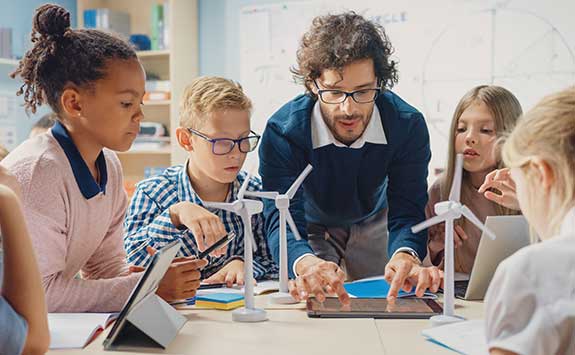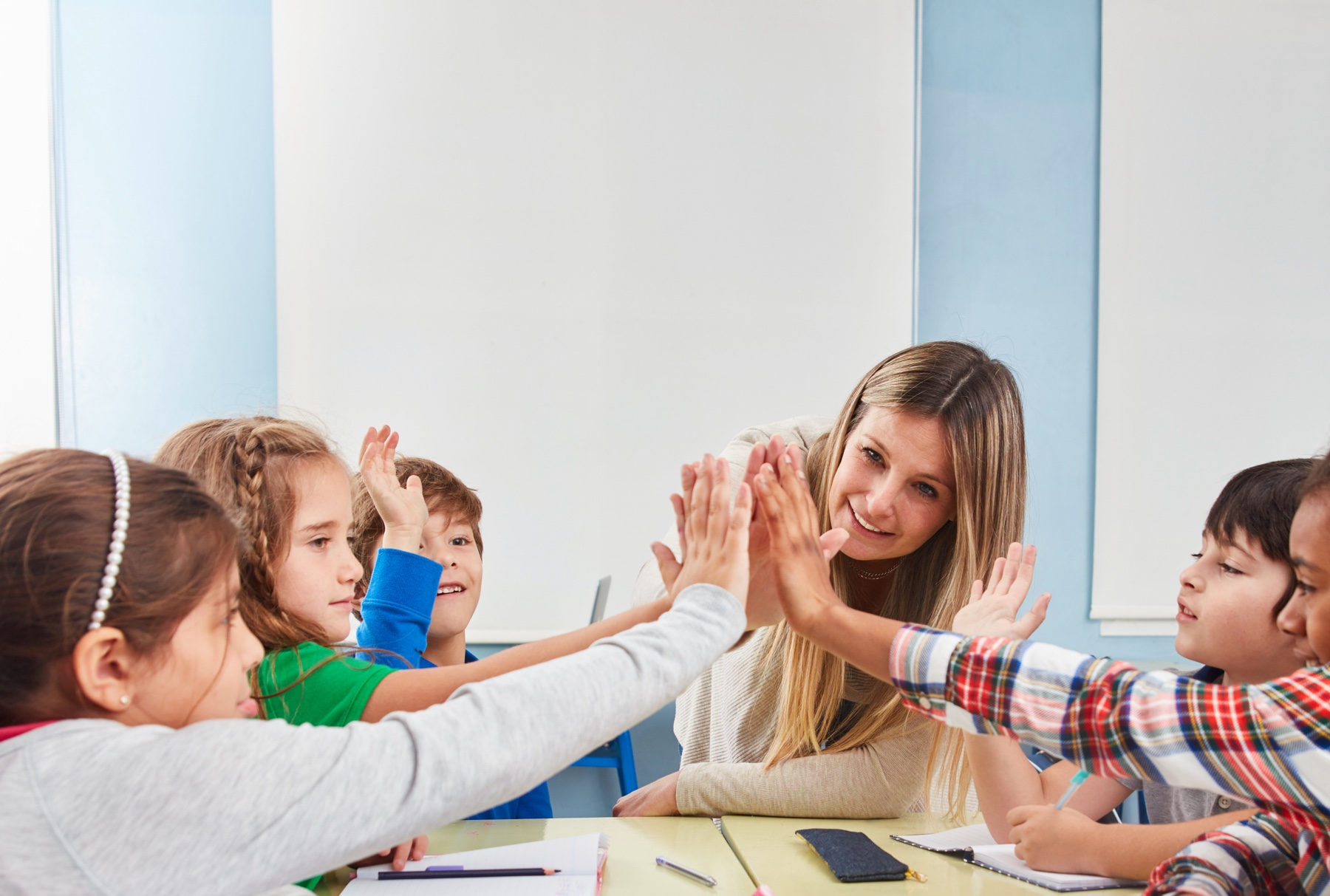Pedagogic Innovation
Curriculum, technology, environment and internationalisation.
Inclusive practices
Our work explores the impacts of the total learning environment on teaching and learning practices and outcomes. We work to effect educational change.
We provide alternative models for the curriculum and environment for pupils, teachers and schools. This helps them to maximise inclusive practices and learner-centred approaches.
Examples of such work includes:
- project-based learning
- inquiry learning
- community curriculum making
- understanding the increasing impact of technology in education
- challenges to the traditional role of the teacher

Self-organised learning environments (SOLEs) are a form of innovative pedagogy.
This method sees students self-organise in groups and learn using a computer with minimal teacher support. Our SOLEs research has driven debate worldwide on the future design of education.
We also advance knowledge of teaching and learning in innovative learning environments. They include open plan and flexible spaces, and outdoor learning.
Examples of our recent work
Examples of our recent work includes:
- PBL goes to University project
- Roma Education and translanguaging to include Romani languages
- Improving progress for lower achievers through Formative Assessment in Science and Mathematics Education
- Impacting on young people’s emotional wellbeing: a Forest School intervention
- ATIAH (Approaches and Tools for Internationalisation at Home)
- Using SOLE Across Borders in Romania, Ukraine and Moldova
- Outdoor learning covers forest schools, school gardening, sail training. We take interest in the impact of such approaches on the emotional wellbeing of children and young people
- Our work on the physical environment has led to the development of collaborative projects. They draw together research, policy and practice in participatory school design.
Examples of publications in this area
Fletcher, E. (2020) Sail training: using acculturation to activate a socio-cultural or natural pedagogy, Pedagogy, Culture & Society, DOI: 10.1080/14681366.2020.1735495
Leat, D., Thomas, U., Hayward, K & de A’echevarria, A. (2020) The Good, the bad, the disconcerting – a week in the life of university project based learning (PBL) week for schools, in M. Steer, S. Davoudi, M. Shucksmith and L.Todd (eds) Hope under neoliberal austerity: responses from civil society and civic universities, Bristol University Press.
Negris de Souza, L., Kowaltowski, D. C. C. K., Woolner, P & de Carvalho Moreira, D. (2020): School design patterns supporting learning through play, International Journal of Play, DOI: 10.1080/21594937.2020.1757204
Tiplady, L.S.E. & Menter, H. (2020) Forest School for wellbeing: an environment in which young people can ‘take what they need’, Journal of Adventure Education and Outdoor Learning, DOI: 10.1080/14729679.2020.1730206.
Wysocki, L. (2020) Hate, Marginalization, and Tramp-bashing: A Raceclass and Critical Realist Approach to Researching British National Identity through Comics. In: T. Giddens (ed) Critical Directions in Comics Studies, University Press of Mississippi.
Cardellino, P. & Woolner, P. (2019) Designing for transformation – a case study of open learning spaces and educational change, Pedagogy, Culture & Society, DOI: 10.1080/14681366.2019.1649297
Mroz, M. & Woolner, P. (2019) Hey teachers leave us kids alone? Can playtimes be enjoyable for all? Education 3-13: International Journal of Primary, Elementary and Early Years Education.
Robson S, Wihlborg M. co-editors, special issue: Internationalization of Higher Education: impacts, challenges and future possibilities. European Educational Research Journal Volume 18, 2, 2019 https://journals.sagepub.com/eprint/wi5BEvwgz6rc774Fm4zV/full
Woolner, P. and Tiplady, L. (2019) Enhancing Wellbeing Through Broadening the Primary Curriculum in the UK with Open Futures. In H. Hughes, J. Franz and J. Willis (Eds) School Spaces for Student Wellbeing and Learning: Insights from Research and Practice. Singapore: Springer.
Blossom-Ward M, Hart S, Kippen R, Ralls D, Rubani N. The future is ours: Young people and the inclusive city. In: Percy-Smith, B; Thomas, NP; O'Kane, C; Twum-Danso Imoh, A, ed. A Handbook of Children and Young People’s Participation: Conversations for Transformational Change. Routledge, 2023, pp.255-264.
Ralls D, Lahana L, Towers B, Johnson L. Reimagining Education in a Pandemic: Children and Young People as Powerful Educators. In: Turok-Squire R, ed. COVID-19 and Education in the Global North: Storytelling and Alternative Pedagogies. Basingstoke: Palgrave Macmillan, 2022, pp.1-35.
Ralls D, Pottinger L. Participatory Mapping. In: Barron A; Browne AL; Ehgartner U; Hall SM; Pottinger L; Ritson J, ed. Methods for Change - Impactful social science methodologies for 21st century problems. Manchester: Aspect and The University of Manchester, 2021, pp.68-76.
Ralls D. Beyond the rainbows: the missing voices of children and young people in this pandemic. London: LSE Politics and Policy Blog, 2020. Available at: https://blogs.lse.ac.uk/covid19/2020/07/10/beyond-the-rainbows-the-missing-voices-of-children-and-young-people-in-this-pandemic/.
Staff working in this area include:
Hanneke Jones
